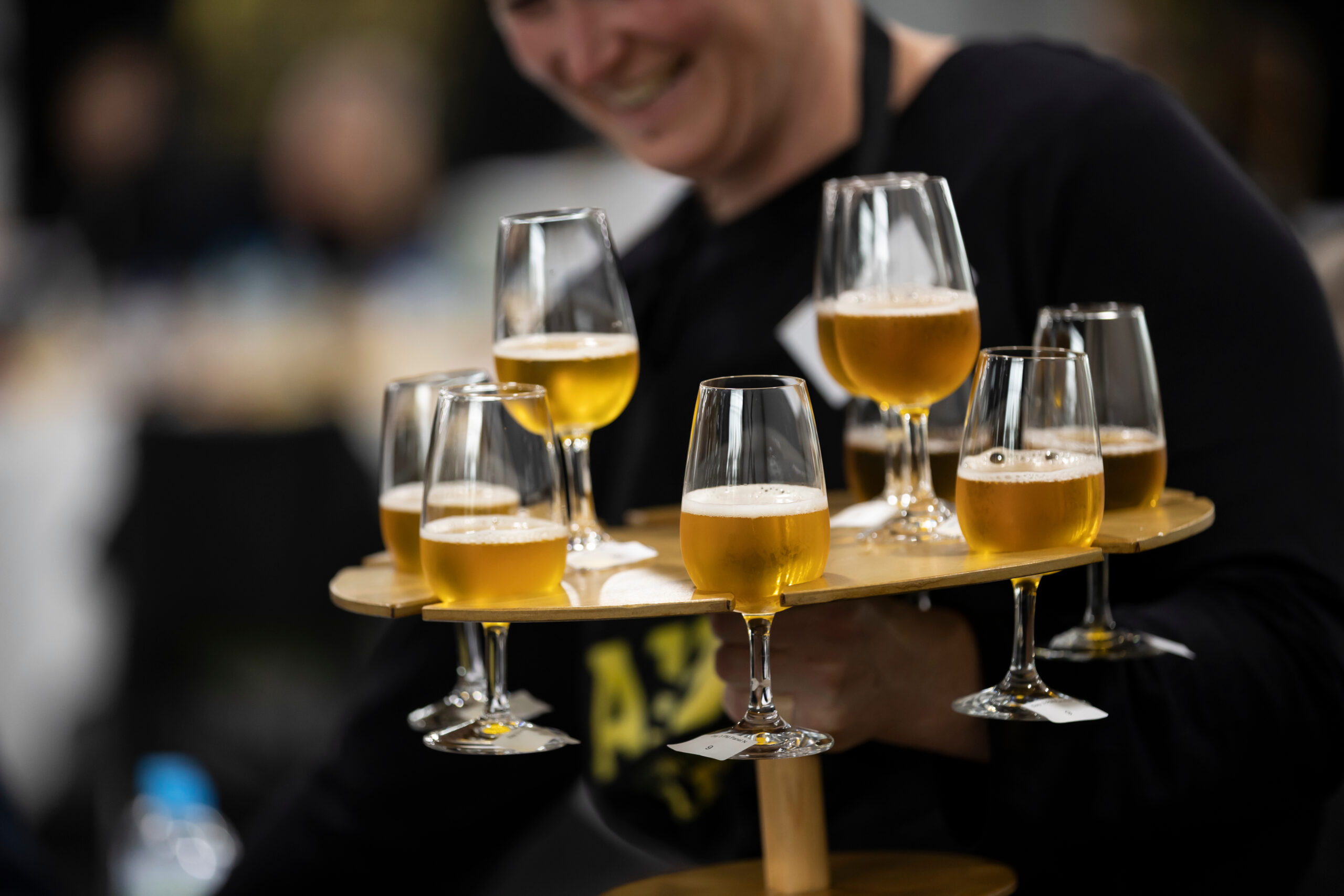
Labels should match entry category says Melbourne Royal

Photo by Luke Hemer.
A rule change at the Melbourne Royal Australian International Beer Awards has caught the eye of brewers this year.
The new rule says that beers must be entered into their correct class according to style. It stipulates that the style of beer stated on the commercial label must match the class entered – for instance if the style of the beer stated on the label is that of an India Pale Ale, then it must be entered into an IPA class.
Beers will not be eligible to win a trophy if the commercial name of the entry stylistically differs from the class it was entered into.
“[The introduction] addresses some of the concerns that have presented through some of our previous results,” explained Melbourne Royal Awards Programs Manager Damian Nieuwesteeg.
“If you have a beer that is marketed as a particular style of beer and then wins a trophy in a different category from that, it doesn’t look great from a consumer perspective.
“It’s also about industry perception, and about the integrity and credibility of our awards. It’s a competition and you expect brewers to want to find the best fit for their beer but that might not match the style guidelines.
“It’s not for us to regulate this, but if you’re marketing your beer as a certain style, then I think it’s fair that the consumer expects it to be that style.”
As a result of the tightening of the rules around labelling and entry categories, beers cannot win a trophy in their entry category unless their label identifies it as the same style of beer as the category.
The issue highlights the increasing importance of accuracy in labelling, which brewers have grappled with in previous years, particularly in relation to identifying the provenance of their beer.
However, Melbourne Royal has ensured that there is room to manoeuvre – for instance, if an IPA is brewed to a lower ABV than the style guidelines recommend, it can still be entered in that category and is still eligible for a trophy.
“If it’s outside of spec there needs to be an understanding about how that’s been brewed and why, what the intentions are behind it.”
This is in line with additional changes it has made to the rules this year, including easing the no tolerance permitted rule on the upper end of abv for its Reduced and Low Alcohol categories.
“Since the introduction of Reduced and Low Alcohol categories to the Australian International Beer Awards, the competition has enforced stringent adherence to the rule that “stated ABV must be as advertised” and that no tolerance was permitted for entries in these categories – though the tolerance was allowed for all other categories,” explained Nieuwesteeg.
“This has resulted in some entries in Reduced and Low Alcohol being disqualified during the audit process (which involves lab testing for ABV) for having an ABV either higher than advertised or was permitted by the competition.
“Feedback from industry, as well as from our Industry Advisory Group, was that the rule should be overturned for this year’s awards (and going forward) given Australian trade measurement regulations permit the tolerance.
“We will continue to audit entries in these categories and others to ensure compliance with stated style and ABV, tolerance permitted.”
The Melbourne Royal Australian International Beer Awards team said it was taking learnings from other awards and its own experienced team.
“We draw analogies from other competitions and to put on a competition, you’ve got to have structure.
“Other drinks, such as whisky and rum, have legal definitions, but in the beer space we just have guidelines. As with the other changes to the Awards this year, we’re happy to field any enquiries about this change.”
Brewers with any questions should get in contact with Melbourne Royal Food & Beverage Awards Programs Manager Damian Nieuwesteeg at damian.nieuwesteeg@melbourneroyal.com.au.



